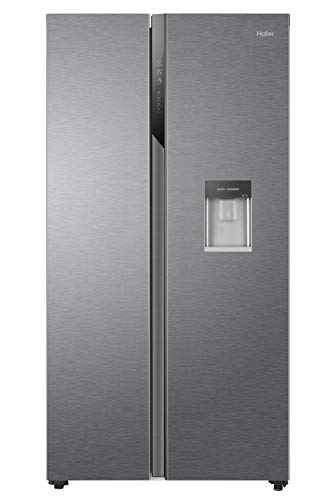20 Myths About Fridge To Buy: Busted
The Ultimate Guide to Choosing the Right Refrigerator for Your Home
Intro
Selecting a refrigerator is a considerable decision for any family. With Ariel Bjorkquist of options available, identifying the right model for your needs can be intimidating. This guide will explore different refrigerator types, necessary features, and suggestions for making an educated purchase. Whether you are moving into a brand-new home or just aiming to replace an old design, this details will assist in selecting the fridge that best fits your lifestyle.
Kinds of Refrigerators
When shopping for a refrigerator, comprehending the different types readily available can streamline the selection procedure. Here's a breakdown of some common refrigerator types:
Refrigerator Type
Description
Top-Freezer
One of the most standard designs, with the fridge area on the top and the freezer below.
Bottom-Freezer
Features the fridge on top for easy gain access to, with the freezer located beneath.
Side-by-Side
Contains 2 vertical compartments; one for the fridge and one for the freezer, allowing more organization.
French Door
Integrates a bottom freezer with double fridge doors, offering sufficient space and contemporary visual appeals.
Compact
Smaller sized size suitable for limited areas or secondary cooking areas.
Smart Refrigerator
Geared up with sophisticated technology for connectivity and benefit, including touch screens and internal video cameras.
Picking Your Refrigerator Type
- Space Availability: Measure the space where you prepare to position the refrigerator, considering door openings and clearance.
- Storage Needs: Think about your usual grocery shopping practices and meal preparation.
- Style Preferences: Consider the cooking area's looks— modern, traditional, or minimalist.
Secret Features to Consider
Apart from type, numerous functions make refrigerators more functional and easy to use. Here are key considerations:
- Energy Efficiency: Look for Energy Star-rated designs that take in less electricity, saving you money in the long run.
- Capacity: Measured in cubic feet, ensure the fridge's capability satisfies your home requires. A good general rule is 4-6 cubic feet per adult.
- Adjustable Shelving: Shelving that can be moved or customized to accommodate bigger items can be exceptionally beneficial.
- Humidity Control: Many refrigerators come with crisper drawers that manage humidity, boosting the durability of vegetables and fruits.
- Water and Ice Dispensers: Added benefit for those who need simple access to drinking water and ice.
- Smart Home Integration: Consider if you want a fridge that gets in touch with your wise home gadgets for added functionality.
Benefits and drawbacks of Refrigerators with Ice and Water Dispensers
Pros
Cons
Convenience of having ice and water readily available
Prospective for leakages or upkeep concerns
Saves area on kitchen counters for water pitches
Greater initial purchase cost
May boost home resale worth
Needs access to plumbing
Budgeting for Your Refrigerator
Establishing a spending plan is important when choosing a refrigerator, as rates can vary significantly based on brand, type, and features. Here's a breakdown of the normal price ranges:
Refrigerator Type
Price Range (GBP)
Top-Freezer
₤ 400 – ₤ 1,000
Bottom-Freezer
₤ 600 – ₤ 1,500
Side-by-Side
₤ 800 – ₤ 2,500
French Door
₤ 1,500 – ₤ 3,000
Compact
₤ 150 – ₤ 800
Smart Refrigerator
₤ 1,500 – ₤ 5,000
Tips for Sticking to Your Budget
- Do Your Research: Compare costs throughout various merchants.
- Search for Deals: Shop throughout holiday sales or clearance events.
- Prioritize Features: Determine which features are essential vs. good to have.
Frequently Asked Questions (FAQs)
1. How long do fridges usually last?
A lot of refrigerators have a life-span of around 10-20 years, depending on use and maintenance.
2. Should I buy a smart refrigerator?
If you prioritize connectivity and benefit, clever designs may be worth it. Nevertheless, think about the higher upfront expenses and prospective maintenance.
3. What maintenance does a refrigerator need?
Routine cleansing of coils, inspecting door seals, and defrosting freezers (if necessary) are crucial for keeping a refrigerator's efficiency.
4. How do I understand if I'm choosing the right size for my refrigerator?
Consider household size, storage requirements, and offered kitchen area space. Follow the basic guideline of 4-6 cubic feet of space per adult.
5. Are energy-efficient refrigerators worth the financial investment?
While preliminary expenses might be higher, energy-efficient models can conserve you cash on energy bills over time.
Choosing the ideal refrigerator involves examining numerous aspects, including type, functions, price, and your particular needs. Understanding the differences in between designs and thinking about elements such as energy effectiveness will assist you make a notified decision. By following this guide and making use of the offered comparisons and suggestions, you will be well-equipped to discover a refrigerator that matches your cooking area and improves your day-to-day life.
In conclusion, the ideal refrigerator not just keeps your food fresh however likewise matches your home's aesthetics and performance. Take your time in making this essential decision to guarantee you pick a design that best serves your requirements for several years to come.
